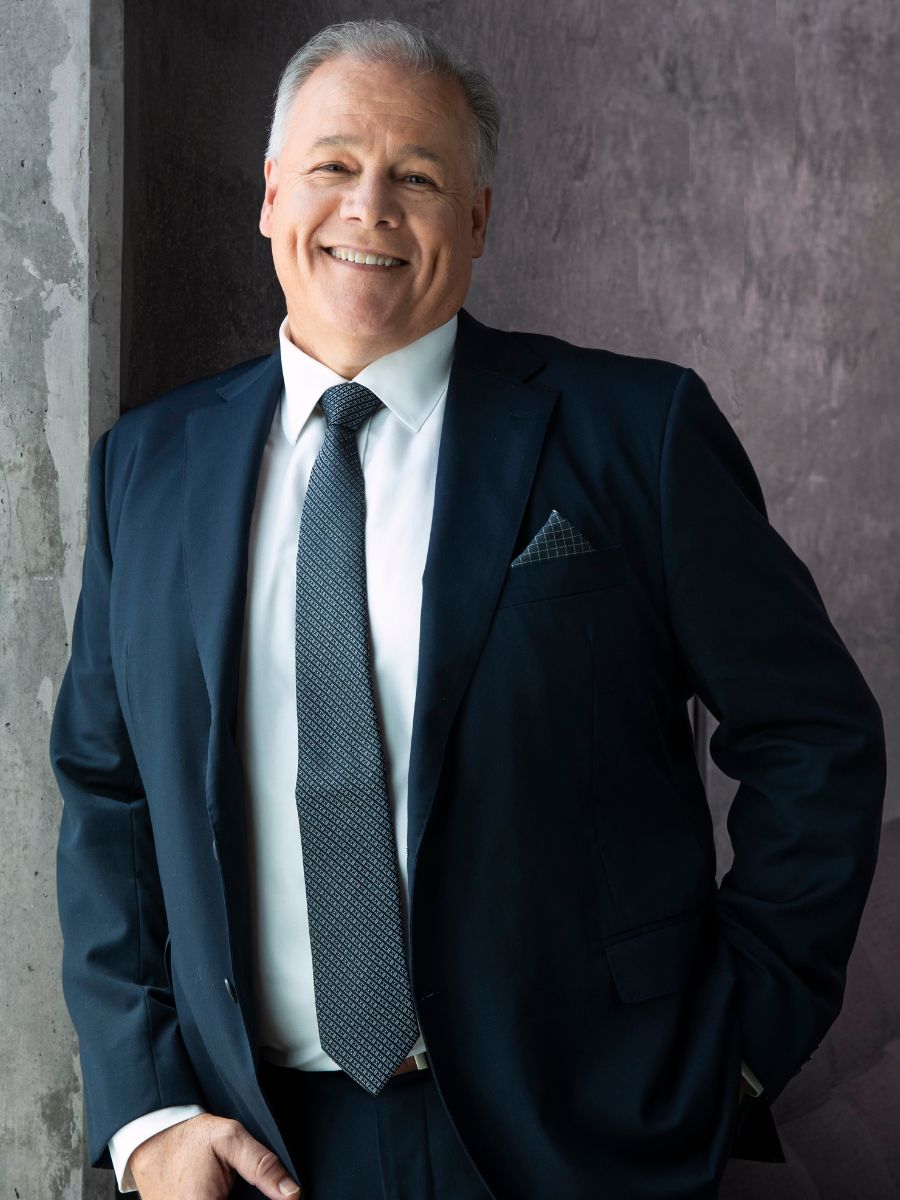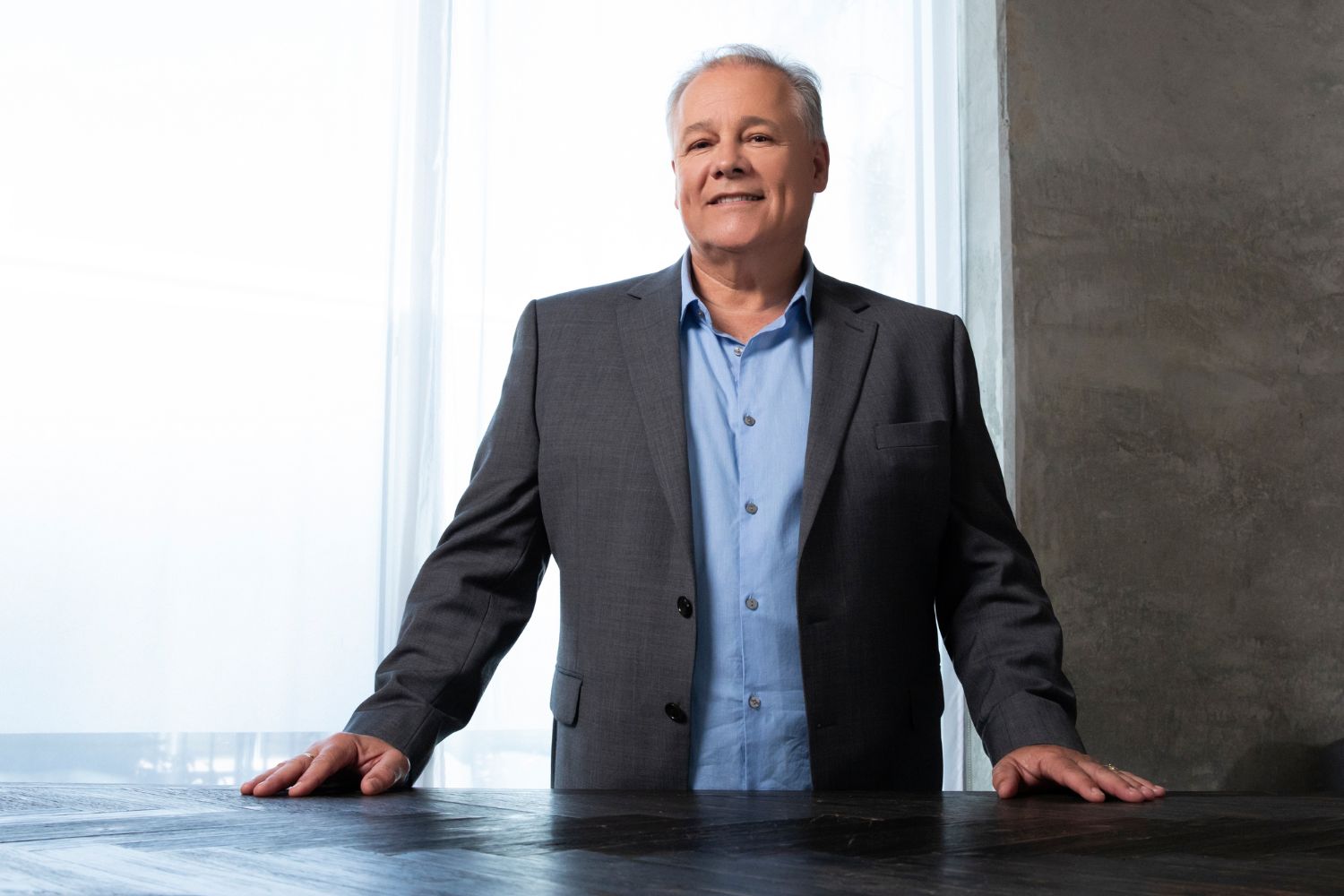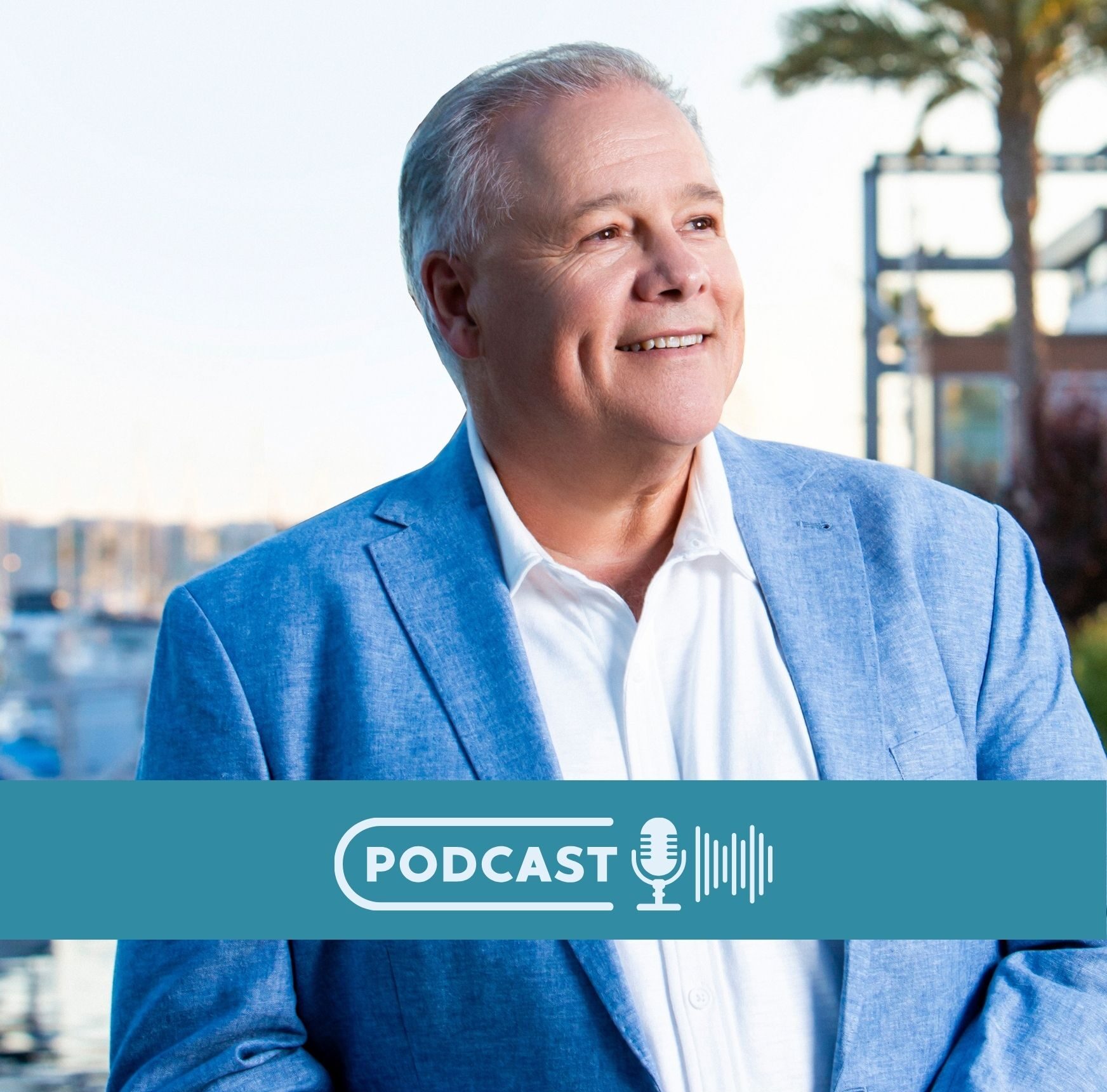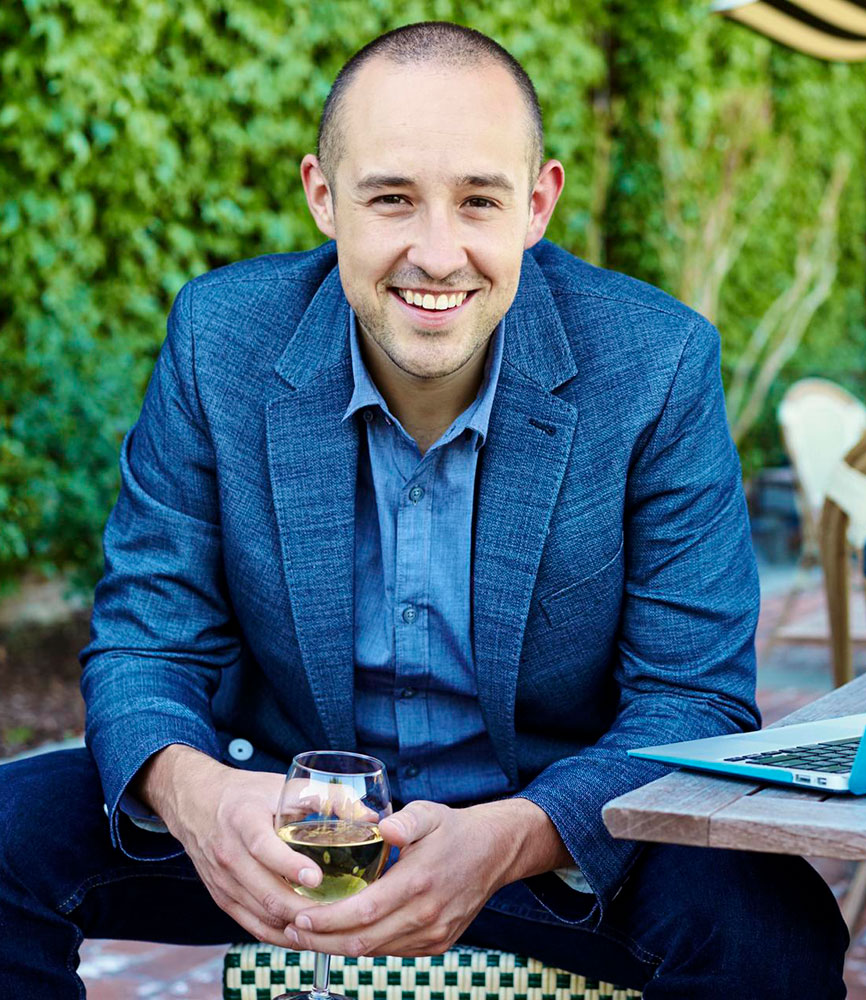In a world obsessed with AI, automation, and the next big tech disruption, Dr. Ben Hamer is championing a refreshingly human-centric vision of the future.
As the #1 thought leader for the Future of Work in Asia-Pacific and an accredited futurist (yes, that’s a real thing!), Ben isn’t your average crystal ball gazer.
He’s a provocateur with a PhD, a board member who crowd-surfs at conferences, and a guy who can make ‘workforce strategy’ sound as thrilling as a blockbuster movie.
I recently had the pleasure of sitting down with Ben for an episode of The Wisdom Of… Show, and let me tell you, it was like getting a glimpse into a crystal ball – if that crystal ball had a wicked sense of humor and a knack for challenging every assumption we hold dear about work.
Ready to revolutionize your approach to work? Watch the full interview with Dr. Ben Hamer now and unlock the secrets of future-proofing your organization.
The 'Learn, Unlearn, Relearn' Paradigm: The New Career Progression
One of the most striking moments in our conversation came when Ben boldly declared, “Leaders are going to have to learn more and have this willingness to learn unlearn and relearn, which is a little bit different to what we’ve seen in the past.”
In a world where leaders are expected to have all the answers, this might sound heretical.
But Ben’s not advocating for chaos – he’s championing a new kind of adaptability.
“Normally you could sort of learn something, go on a conference once a year, top up your knowledge cup, and then just build and build and build. But we can’t afford to sort of get into that fixed mindset,” Ben explains.
This shift from seeking certainty to building adaptability through constant learning is a game-changer for decision-making in our volatile world.
As someone who’s worked with countless organizations to uncover their hidden genius, I can’t stress enough how crucial this mindset shift is. In my experience, the companies that thrive are not those with rigid five-year plans, but those that can adapt, learn, and pivot with agility.
The Authenticity Revolution: Why Gen Z is Fleeing LinkedIn
Doesn’t corporate communication often feels like a well-polished façade?
It does to me… and I loved it when Ben introduced a perspective that had me leaning forward in my seat.
“Gen Z are starting to pull away from LinkedIn because they don’t see it as being an authentic medium,” Ben explains.
“They don’t want a senior lead that sits in front of a camera, reads off an auto cue or a script, then that has it go to corporate communications to have it polished up in full production value to get sent out. Because as far as they’re concerned, you’re trying to manipulate them.”
This is a fundamental shift in how future generations expect to engage with leadership.
As Ben puts it, “They would much rather that you pulled out your phone, just talk it in one take. If you make a mistake, even better! They love that because it shows that you’re being just the real version of you.”
This call for authenticity isn’t just a Gen Z quirk – it’s a preview of the future of leadership communication.
Imagine if every CEO ran their communications through this filter. How might it change our approach to everything from internal memos to public statements?
The Metaverse Workforce: Your Office in the Cloud
Brace yourselves, because the future of work looks nothing like your current office setup.
Ben painted a picture of a 2030 workplace that sounds more like science fiction than reality: “We will definitely see organizations have offices in the metaverse, their clients will be in the metaverse. Their employees will be working in the metaverse as well.”
But it’s not just virtual offices. Ben introduces the concept of spatial computing: “You put it on and your computer screen, your keyboard, everything comes up as a hologram.
So in that sense, you won’t necessarily need a laptop. You won’t need a fixed workstation, wherever you put your headset on. You can work. You can be at your computer. You can be in virtual meetings.”
This is a fundamental reimagining of what ‘going to work’ means. It challenges our notions of physical presence, collaboration, and even the nature of organizations themselves.
As a leader, are you prepared for a world where your team could be scattered across the globe but working side-by-side in a virtual space?
The Ethics of AI: It's Not About the Tech, It's About Us
As AI continues to dominate headlines, Ben offers a refreshing perspective on the ethical implications. “We still don’t necessarily know where the data is going because the way these tools become sophisticated, they learn from the data you put in,” he explains. But Ben’s concerns go beyond data privacy: “We have no visibility of the people behind the keyboard making that happen.”
This focus on the humans behind the AI is crucial.
This perspective aligns perfectly with my belief that the future belongs to organizations that can unlock their collective genius – not by trying to turn humans into machines, but by creating environments where human creativity, diversity, and ethical considerations can flourish alongside technological advancements.
The Power of Pause: Why Stillness is the New Productivity
In our always-on, hyper-connected world, Ben made a case for something that might seem counterintuitive: strategic stillness.
“We’ve had to systematize that to make it something that people can understand,” Ben explains, discussing how forward-thinking companies are building ‘pause rituals’ into their processes.
From team retrospectives to health monitors, these structured pauses force teams to step back, reflect, and course-correct. As Ben puts it, “Every time we do that, you do get a fresh perspective.”
This resonates deeply with my own work on the power of the pause and the renaissance of wisdom.
Often, the breakthrough moments don’t come from pushing harder, but from creating space for reflection and connection. It’s in these pauses that we can see the patterns, make the connections, and unlock the true potential of our teams.
Future-Proofing Your Skills: The #1 Thing You Can Do
Perhaps the most practical piece of advice Ben offered was his tip for developing ‘futures literacy’: “The number one thing you can do is talk to teenagers,” he says. “They are your insight into the future.”
Ben suggests asking teens about their app preferences, their views on current events, and their visions for the future.
“Have conversations with them about how they see the world and engage with it because that’s your window into what it looks like,” he explains.
This advice is more than just a cute trick – it’s a fundamental shift in how we approach future planning.
Instead of extrapolating from past trends, Ben is advocating for direct engagement with the generation that will shape our future.
Embracing the Future, Today
As we wrapped up our conversation, I was struck by the balance Ben has achieved – a clear-eyed view of the challenges facing modern organizations, tempered with an unshakeable optimism about human potential.
His approach to the future of work isn’t just chasing trends or implementing the latest tech. Instead, he advocates for creating environments where people can do their best work, connect meaningfully with others, and contribute to something larger than themselves.
For any leader grappling with the complexities of modern work – from AI integration to distributed teams to ethical decision-making – this conversation is a must-watch.
Ben offers not just insights, but practical tools and frameworks that can help you navigate these challenges with confidence and humanity.
So here’s my challenge to you: Watch this episode.
Then, take a page from Ben’s book and schedule some strategic ‘pause time’. Reflect on your own approach to the future.
Ask yourself: Are you leading for the next quarter, or the next generation?
The future of work is being shaped right now, by leaders like Ben and thinkers like you. Don’t just watch it happen – be part of the conversation.
Watch the full interview with Dr. Ben Hamer on The Wisdom Of… Show.
And don’t miss Simon Bowen’s transformative masterclass on unlocking your organization’s hidden genius. Your future self will thank you.










